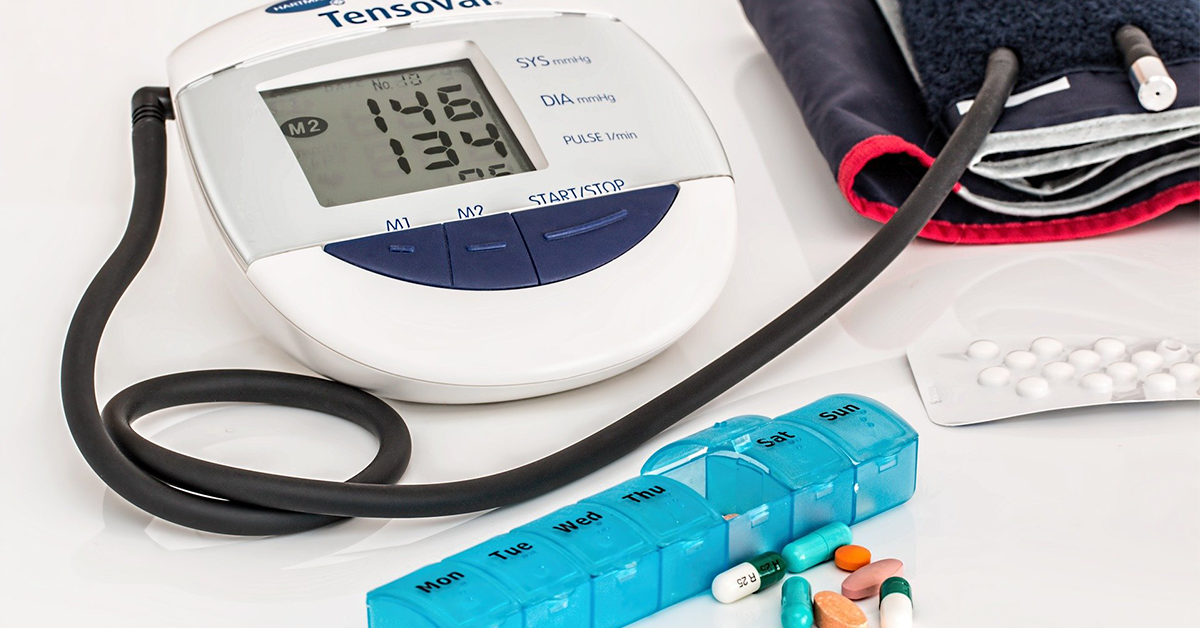High Blood Pressure (Hypertension) Management
1 in 4 adults in Singapore have high blood pressure, also known as hypertension. It is the leading cause of cardiovascular disease and one of the major risk factors for stroke and coronary heart disease.
Find out how to reduce your risk and keep your blood pressure within healthy range.
What is high blood pressure?
High blood pressure, or hypertension, is a condition where your blood pressure is constantly higher than normal.
When the force of blood pushing through the walls of your blood vessels increases, your arteries can become damaged and narrowed making them less elastic. With high blood pressure, your blood vessels must work harder to transport oxygenated blood around your body.
This eventually damages the tissues surrounding the walls of your arteries (atherosclerosis) and can put you at risk of heart disease.
What causes high blood pressure?
High blood pressure is typically caused by unhealthy lifestyle choices or preexisting medical conditions such as diabetes and kidney disease.
Certain risk factors such as alcohol consumption, smoking, obesity and a high BMI also increases your blood pressure.
Those with a family history of high blood pressure are prone to developing the condition. This risk is increased if you:
- Do not practice a healthy diet and have a sedentary lifestyle – this type of lifestyle increases plaque buildup in your arteries
- Smoke – smoking can cause further damage to the walls of your arteries (atherosclerosis) and affect your blood’s ability to clot normally
Fortunately, hypertension can be managed with the appropriate treatment and medication. Your Speedoc doctor will tailor and adjust your medication to optimise care and management of your condition.
What are the signs of high blood pressure?
High blood pressure often comes with no symptoms until significant damage has been done to the heart and arteries. For this reason, hypertension is often touted as a “silent killer” and many patients go undiagnosed for years.
Some tell-tale signs to look out for:
- Blurry vision
- Headache
- Nosebleeds
- Chest pains
- Arrhythmia (Irregular heartbeats)
If you frequently experience these symptoms, please see a doctor and go for high blood pressure screening immediately.
How is high blood pressure diagnosed?
Hypertension can be measured with a blood pressure monitor at home or at a doctor’s clinic.
There will be two readings: the higher number checks for systolic pressure (pressure in arteries when your heart beats) and the lower number tests for diastolic pressure (pressure in arteries when your heart is at rest in between heart beats).
*For adults aged 18 years and above.
If your blood pressure is recorded to be higher than 180/120 mm Hg, it is considered Stage 2 hypertension and an emergency.
If you suspect you may be suffering from hypertension, seek medical help immediately and change your lifestyle habits to bring down your blood pressure to normal levels.
Testing for high blood pressure at Speedoc
High blood pressure is diagnosed during a blood pressure reading. The numbers from the reading will be an indication of whether your blood pressure is within normal range or if you have stage 1 or stage 2 hypertension. Blood and urine tests may also be performed to check for preexisting medical conditions that may be contributing to an abnormally high blood pressure.
You may also have your BMI (body mass index) recorded and undergo an electrocardiogram test (ECG) to evaluate your cardiovascular health – undergoing these extra tests will help us tailor a management plan for your condition.
Unhealthy lifestyle habits such as smoking are additional causative factors to your high blood pressure, you may be advised to undergo a smoking cessation programme to help you kick the habit.
What are some treatment options for high blood pressure in Singapore?
In Singapore, high blood pressure can be treated with medication that is prescribed by a doctor to help widen blood vessels and allow blood flow to return to normal.
It is key that you also manage your health at home by practicing healthier lifestyle habits. This involves consuming a healthy diet, exercising for at least 30 minutes daily and undergoing regular health checkups to continue to monitor your condition.
Managing Your High Blood Pressure At Home
- All relevant lab tests
- 1 doctor house call
- 1 nurse house visit
- Quarterly review via teleconsultation
- Medication not included
Frequently Asked Questions
1 in 4 Singaporeans aged 30 to 69 suffers from hypertension. This risk increases as you get older.
Your blood pressure goes down during sleep – lack of sleep or having sleep problems means your blood pressure stays higher for a longer period of time. Poor sleep can also lead to higher stress levels and unhealthy food choices – factors which will over time hurt your heart health.
To respect the privacy and confidentiality of both our patients and staff, capturing photographs or the recording of video and audio is strictly prohibited during the appointment.
Hypertension is a global epidemic that affects 1.3 billion people. It contributes to approximately 7.5 million deaths a year worldwide.
There is no best time to take blood pressure, the most important is being consistent. However, there are various contributory factors to blood pressure fluctuation. Therefore, a good practice is to take your blood pressure reading first thing in the morning before food.
